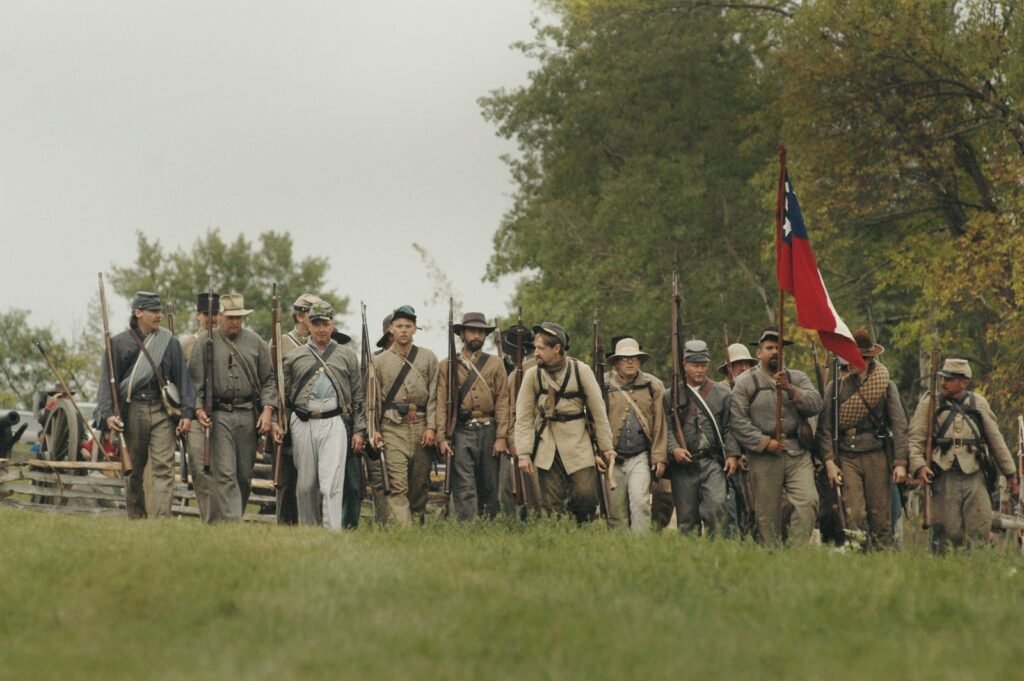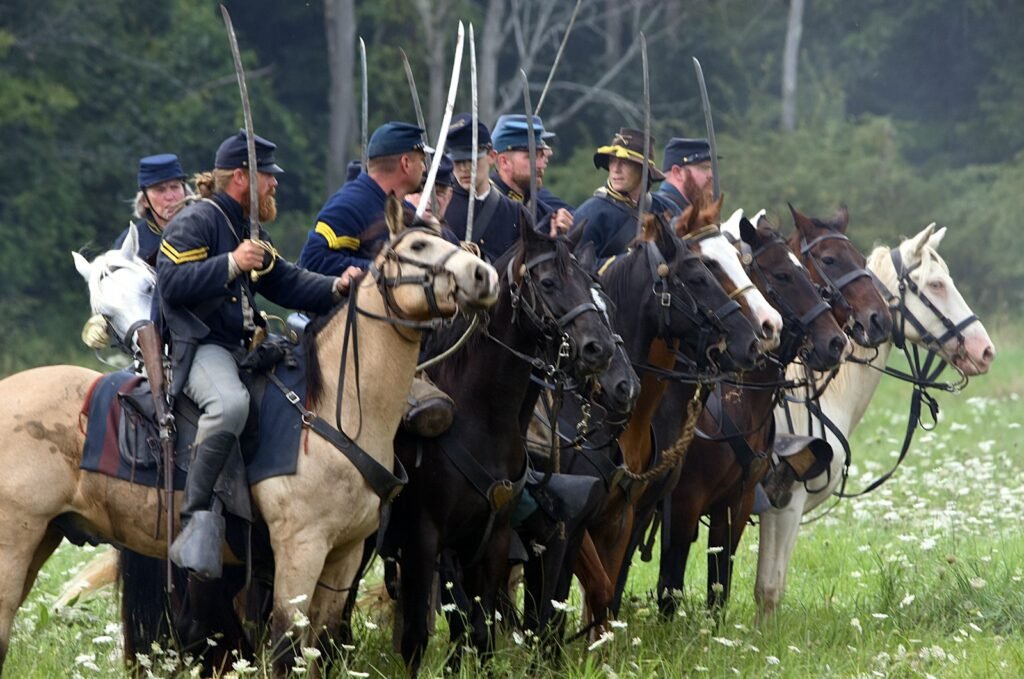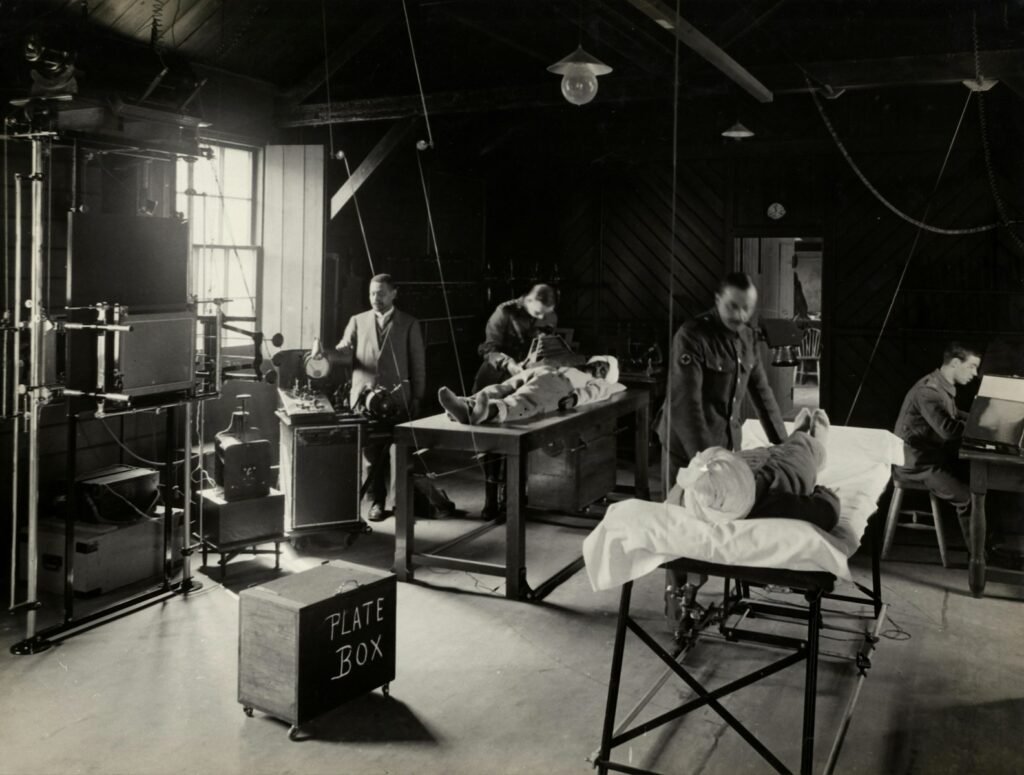
Background Information
Imagine, if you will, a time of opulent extravagance and grandeur – the 18th century. A period marked by elaborate powdered wigs and the rise of powerful empires, where every strategic move on the global stage was executed with meticulous precision. In the midst of this chaotic era, a conflict brewed that would leave an indelible mark on history – the War of 1812. This epic saga is brimming with suspense, mystery, and high stakes that could rival even the most adrenaline-pumping blockbuster film.
As tensions reached a boiling point across vast oceans, the United States found itself ensnared in a dangerous game orchestrated by British and French powers. Echoing Thomas Jefferson’s wise words that “the price of freedom is eternal vigilance,” it became clear that this young nation needed to remain ever watchful during these tumultuous times. With issues such as impressment of American sailors, restrictive trade policies, and territorial disputes hanging precariously in the balance, it was only a matter of time before all hell broke loose. Buckle up, dear readers! We are about to embark on a thrilling journey through the gripping narrative of the War of 1812 from an American perspective.”
Causes of the War
Immersed in the depths of 18th-century history, while delicately sipping on a warm cup of tea, one cannot help but be captivated by the convoluted tapestry of events that culminated in the explosive eruption of the War of 1812. It was a time when tensions between the United States and Britain hung heavy in the air like an impending storm.
The War of 1812 was a confluence of myriad factors that had been festering beneath the surface for years. From British impressment of American sailors to trade restrictions and Native American uprisings, the stage was intricately set for conflict. As President James Madison poignantly noted, “The war was an inevitable choice for the American people, as our stance was an imperative one for the American government.” It was a collision of ideologies and interests that demanded attention, ultimately culminating in the declaration of war in 1812.
American Perspective
Oh, let me unravel the complexities of the American perspective on the War of 1812! The Yankees were utterly exasperated with the British shenanigans – pressing our sailors and meddling with our trade. Thomas Jefferson’s words echd in our minds, “The British have long made a sport of impressing American sailors,” igniting a fire within us. It was a tipping point for us, a moment to assert our rights and declare to those redcoats that we would not be trampled upon.
Our passion for independence and freedom surged within us as the British infringed upon our trade and disrupted peace on the seas. We could not remain idle spectators to this injustice. James Madison’s words resonated deeply, “The war has proved that our resources are entirely competent to the war.” And so we rose up, fighting ferociously to defend our young nation and safeguard our interests. It was indeed a tumultuous journey, but one that etched into history defining moments for us as a nation.
British Perspective
The British viewpoint on the war was one of perplexity and bewilderment. Countless British officials were left scratching their heads, wondering why the colonies seemed so unappreciative of all the protection and resources bestowed upon them by the mighty British Empire. As General Cornwallis bluntly put it, “We have showered these rebels with kindness, yet they remain ignorant to our benevolence.”
Adding to the confusion was the rebellious and unlawful behavior exhibited by the colonists, according to the British government. King George III himself expressed his exasperation, stating, “It is imperative that these colonists learn obedience, no matter what measures are required.” This uncompromising stance only served to fuel tensions further until war inevitably erupted.
Canadian Perspective
In the midst of the American Revolutionary War, our neighbors to the north in Canada found themselves in a perplexing and tumultuous situation. Tied to the British Empire, many Canadians were filled with unease at the prospect of their American counterparts seeking independence. The Canadian Perspective on the war is a tangled web of loyalty to the Crown and apprehension about potential chaos in their region. As General Richard Montgomery cryptically remarked, “Canada must be ours. Failure in this would result in disappointment and unleash a torrent of troubles that would plague us throughout this conflict.”
One cannot help but ponder the mix of emotions experienced by Canadians as they navigated through the unpredictable landscape of war during that time. With British soldiers stationed within their communities and American troops closing in from all directions, Canadians had to proceed cautiously to safeguard their own interests and ensure their well-being. Just as historian R.D.W Connor so eloquently stated, “Canada was not simply invaded; it was outgeneraled.” The Canadian Perspective on this war speaks volumes about their strength and flexibility as they endured through the whirlwind of revolution engulfing them.
Indigenous Perspective
In the perplexing era of the 18th century, the Indigenous viewpoint on war was often overshadowed and disregarded within the larger narrative. Despite being profoundly affected by the turmoil, their voices were frequently drowned out amidst the chaotic noise of colonial powers. Native tribes found themselves grappling with intricate alliances during a time of immense upheaval, as they endeavored to safeguard their lands and way of life against encroaching forces.
One striking recollection comes from Iroquois leader Joseph Brant, who famously declared, “We stand as a blazing barrier against the deluge of settlers. Our people have endured countless hardships due to others’ insatiable greed, yet we remain resolute in our determination to protect our homelands.” This poignant sentiment captures the fierce resolve of Indigenous peoples to resist colonial expansion and uphold their cultural heritage. Despite enduring profound adversities and betrayals, they displayed unwavering resilience and fortitude in the face of daunting challenges.
Key Battles
Delving into the perplexing depths of 18th-century warfare, one cannot ignore the momentous Battle of Saratoga in 1777. This clash, with General Burgoyne at the helm of British forces and General Gates leading the Americans, shifted the course of the American Revolutionary War. When Burgoyne surrendered, Benjamin Franklin astutely observed, “This event stands as a pivotal moment in our history; against overwhelming odds, we persevered and defied expectations.”
Fast forward to the scorching summer of 1781, where we are met with the strategic Battle of Yorktown. General Washington, symbolizing American tenacity and grit, orchestrated a brilliant land-sea siege against British forces commanded by General Cornwallis. The surrender at Yorktown marked a turning point in the American Revolution, prompting French General Rochambeau to proclaim,”The undeniable prowess of the French Navy played a crucial role in securing America’s ultimate triumph.”
Impacts on Trade
The war’s effects on trade were both widespread and perplexing, as goods suddenly became scarce and prices skyrocketed to unimaginable heights. The chaos that ensued in the trading world due to disrupted shipping routes led to shortages of essential items, leaving many struggling to afford even the most basic necessities. As one merchant from the 18th century lamented in utter disbelief, “The war has brought ruin upon our trade, with prices soaring higher than the heavens themselves and customers as rare as hen’s teeth.
The imposition of trade embargs and blockades during the conflict only added fuel to the fire, further crippling the economy and causing American merchants to suffer significant losses as their goods sat idle in port or fell into enemy hands. The once-thriving trade networks were thrown into a state of burstiness, with markets in disarray and businesses facing unprecedented hardships. In the words of a dismayed colonial trader whose world had been turned upside down overnight: “Our profits have vanished like smoke in the wind, and our flourishing trade now lies in ruins.” The repercussions of this devastating impact on trade would be felt for years to come, reshaping the economic landscape and leaving an indelible mark on the nation’s development.


